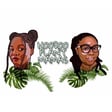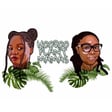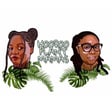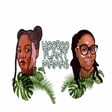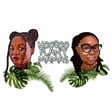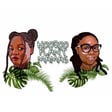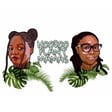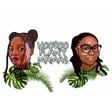
Ep 57: Mississippi Saints and Sinners
In our season finale, we review Ryan Coogler's Sinners (2025). As Mississippi Hoodoos, we have to talk about the Mississippi and Hoodoo rep in this film. We get into Mississippi racial politics as well as whiteness and assimilation as vampirism. We discuss the need to let go of representational politics and learn to appreciate art for what is is rather than what we want it to be.
RESOURCES
- "if you loved Sinners, read these books" Leah Nicole. YouTube.
- Apocalypse Still by Leah Nicole Whitcomb
- "SINNERS BREAKDOWN! Easter Eggs & Details You Missed!" New Rockstars. YouTube.
- Hess Love Instagram Post
- "The Story of Chinese Laborers and the Reconstruction South." May 2, 2022. Tennessee State Museum.
- "Inventing the 'Model Minority': A Critical Timeline and Reading List" Densho.
- Passing by Nella Larsen
Create your podcast today! #madeonzencastr
BOOKSHOP
https://bookshop.org/shop/hoodooplantmamas
Apocalypse Still by Leah Nicole Whitcomb
About the Boy by Leah Nicole Whitcomb
BE A PATRON!
https://www.patreon.com/hoodooplantmamas
SOCIAL MEDIA
Instagram: @hoodooplantmamas
DONATE
Paypal: paypal.me/hoodooplantmamas
Cashapp: cash.me/$hoodooplantmamas
This podcast was created, hosted, and produced by Dani & Leah.
Our music was created by Ghrey, and our artwork was designed by Bianca.
